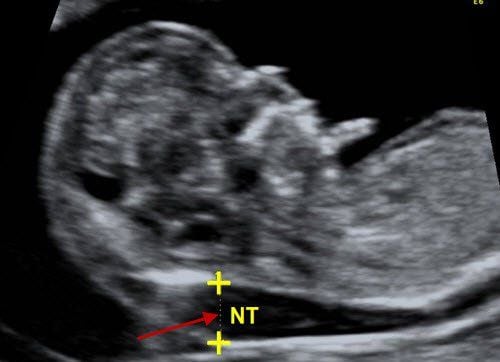Some studies from the Centers for Disease Control and Prevention (CDC) show that women who have a cold or flu before or during pregnancy are more likely to give birth to children with birth defects.
1. What is the flu?
The flu is an acute respiratory viral infection. Usually influenza A with 15 hemagglutinating antigens H (H1-H15) and 9 neutralizing antigens N (N1-N9).
Usually, the disease will last from 7-10 days and most people will recover completely. For those with weak immune systems, the disease can cause serious changes and can even cause death due to complications.
2. Signs of pregnant women with flu
Some signs to recognize flu in pregnant women are:
- Dry cough
- Fever during pregnancy, gradually leading to high fever
- Sore throat
- Feeling cold
- Severe muscle or body aches
- Headache
- Nasal congestion, runny nose
- Prolonged fatigue.
Flu symptoms often occur quickly and can be severe. Symptoms tend to be more severe and last longer. During the first 3 months of pregnancy, pregnant women are advised not to use drugs, especially antibiotics, to avoid the risk of miscarriage, pregnancy poisoning and sequelae, and fetal malformations later.
However, if the pregnant mother is at risk of complications from the flu, the doctor may prescribe antiviral drugs, some prescription drugs to treat symptoms and complications.

3. How does a cold or flu during pregnancy affect the baby?
Pregnant women who have a cold or flu with a fever just before or during pregnancy may be associated with some birth defects such as:
- Weakness
- Spina bifida
- Cleft lip and palate
- Spastic colitis
- Bilateral renal failure.
Pregnant women who have a cold or flu without a fever may not increase the risk of giving birth to a child with birth defects. In particular, one recent study found that if a pregnant woman has a fever in the second trimester, it can increase the risk of autism by up to 40%. If a fever occurs after the 12th week of pregnancy, the risk can increase by 3 times.
Researchers believe that fever may be related to the body's response to fever-causing infections, which can affect the development of the fetus's brain. Some pregnant mothers, when the body's immune response occurs, may increase the risk of illness in the newborn.
Research has shown that the rate of autism increases by 34% when the mother has a fever in the first trimester and 40% when she has a fever in the second trimester. In the third trimester, a fever in the mother can increase the risk of autism in the fetus by 15%.
Details about the development of the fetus by week, every parent should know: The more fevers, the higher the risk of illness in the child. The risk is 1.3 times higher than one or two fevers after the 12th week of pregnancy, and for women who have three or more fevers after the first trimester, the risk of autism is 3 times higher.
In addition, researchers have shown that the mother's exposure to viruses and bacteria during pregnancy affects the mother's body environment, so the baby is at risk of asthma and allergies at a young age.
In addition, these children are exposed early to allergens such as dust and pet hair, increasing the child's sensitivity rate. Allergies and asthma can occur even when the fetus is still in the mother's womb because these two diseases are likely to be hereditary.
4. Preventing flu in pregnant women

There is currently no vaccine for the common cold. The way to prevent flu is to get a flu vaccine. Pregnant women should get a flu vaccine to protect themselves and their babies.
Pregnant women should minimize contact with crowded places because flu viruses can spread through the air when someone talks.
Wash your hands thoroughly because flu can spread by hand when sharing utensils with a sick person. Pregnant women should wash their hands with soap, and warm water or use an alcohol-based hand sanitizer. Avoid touching your nose, eyes and mouth.
In addition, pregnant women should also choose gentle, appropriate exercises to improve their physical condition while ensuring a reasonable diet, and eating lots of fruits and vegetables to improve the body's immune system.
The first 3 months are the most sensitive time during pregnancy, it will be very dangerous if the pregnant mother has a cold or flu. When contracting the flu in the first trimester, both mother and fetus can be seriously affected in terms of health, causing miscarriage, fetal malformations, etc., which is very high. Therefore, getting vaccinated against the flu before and during pregnancy is extremely necessary. In addition to getting vaccinated before and during pregnancy, to have a healthy fetus, pregnant women need to take care of and have regular check-ups at reputable medical facilities.
With the desire to bring the most special and preferential care to mothers and babies from the time of preparing for pregnancy to childbirth, Vinmec International General Hospital currently provides customers with vaccines for women preparing for pregnancy and vaccines that can be injected during pregnancy. The vaccines available at Vinemc all have clear origins and are preserved by a cold chain that meets GSP standards with a modern cold storage system, allowing vaccines to always be preserved in good conditions. In addition, pregnant women are also examined and monitored for their health before and after vaccination to ensure maximum health.
In addition, pregnant women can also choose the Comprehensive Maternity Care Program. Accordingly, mothers and babies will receive comprehensive care: before, during and after birth. Mothers will be given special health checks, including thyroid screening, Rubella testing; and testing for parasites transmitted from mother to child. Babies will be screened before and after birth to help screen for abnormalities and congenital malformations right from the womb. In particular, at Vinmec, doctors will analyze the results and provide genetic counseling for prenatal screening for babies.
In addition, the complete “painless delivery” service during and after birth using non-morphine epidural anesthesia and pudendal anesthesia will eliminate the fear of childbirth for many mothers. During the birth process, the mother will be instructed by nurses on how to push and breathe properly, the baby will be born in just 10 - 15 minutes. After birth, the baby will be cared for in a sterile room before being returned to the mother. The mother will rest in a high-class hospital room, designed according to international hotel standards, 1 mother 1 room with fully modern and convenient equipment. The mother will be advised by nutrition experts on how to feed the baby before being discharged from the hospital. Postpartum check-ups for both mother and baby with obstetricians and pediatricians.
Reference source: Cdc.gov; Webmd.com
To arrange an appointment, please call HOTLINE or make your reservation directly HERE. You may also download the MyVinmec app to schedule appointments faster and manage your reservations more conveniently.








